Israel’s second election in five months has opened the door to the prospect of a legislated program of liberal reforms that could nudge the country toward greater secularization and grant the disaffected Arab minority a far more tangible stake in Israeli society.
With the September 17 general election having ended almost as inconclusively as the April 9 election, the stage was set for the formation of a national unity government whose composition and orientation may well be dictated by Avigdor Liberman, the leader of the right-wing secular Yisrael Beytenu Party, which picked up eight Knesset seats.
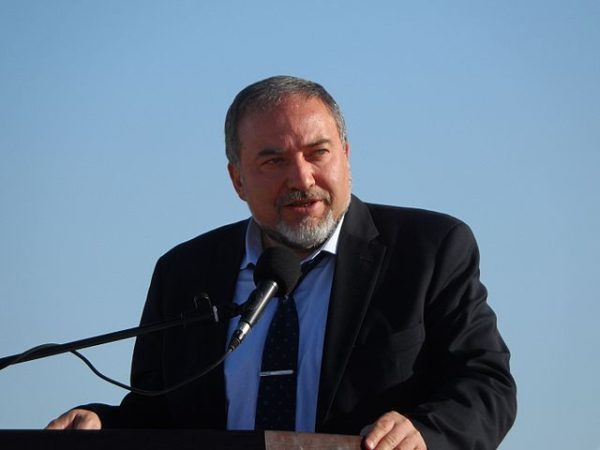
Prime Minister Benjamin Netanyahu’s Likud Party won 35 Knesset seats in the April election, the same number as Benny Gantz’s centrist Blue and White Party. Netanyahu, unable to cobble together a government due to Liberman’s refusal to join a coalition that included ultra-Orthodox Jewish parties, dissolved Parliament and called a new election.
Once Netanyahu’s ally, Liberman was his chief of staff in the 1990s and, more recently, his foreign minister and defence minister.
As widely expected, the election two days ago was extremely tight, with the Blue and White Party barely squeaking by the Likud Party. With Gantz holding 33 seats, only two more than Netanyahu, the necessity of a unity government is now a foregone conclusion.
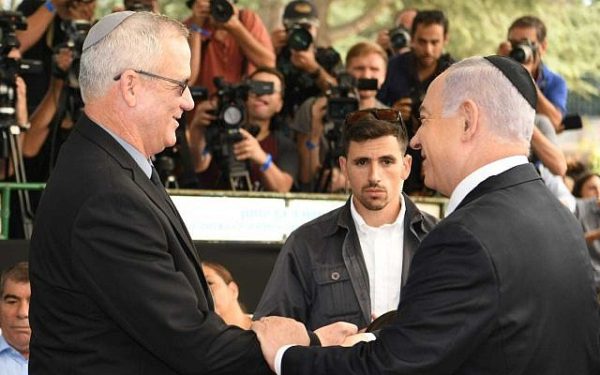
At present, with 96 percent of the votes counted, the right-wing bloc commands 55 seats, six short of a majority in the 120-seat Knesset. The Blue and White Party, in alliance with the Labor Party and the Democratic Camp, can muster 45 seats. This figure would rise to 57 should the Arab Joint List — an amalgamation of four Israeli Arab parties which won 13 seats — support Gantz from the outside.
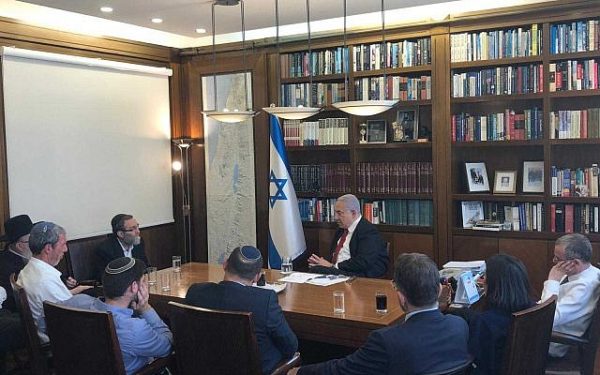
Since the creation of Israel in 1948, no Arab party has ever formally been a member of an Israeli government. A few weeks ago, the leader of the Arab Joint List, Ayman Odeh, said he would consider joining a center-left coalition under Gantz’s premiership if his demands are met.
Odeh has primarily demanded the repeal of the controversial nation-state law, which downgraded the status of Arabic in Israel, and the resumption of peace talks between Israel and the Palestinian Authority, which broke off in 2014.
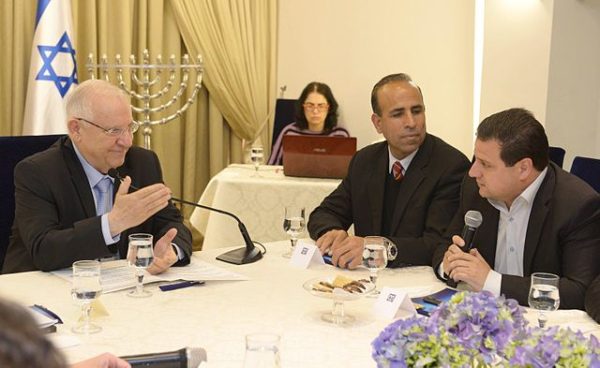
Gantz and his partners in Blue and White — Moshe Ya’alon and Yair Lapid — have rejected Odeh’s unprecedented willingness to join a coalition, but have expressed a readiness to improve social and economic conditions in the Arab community, which lags behind the Jewish one in terms of budgetary allocations from the government.
If Odeh’s demands bear fruit, the Arab minority, comprising 20 percent of Israel’s population, would be considerably better off than it is today and feel more at one with its place in Israel.
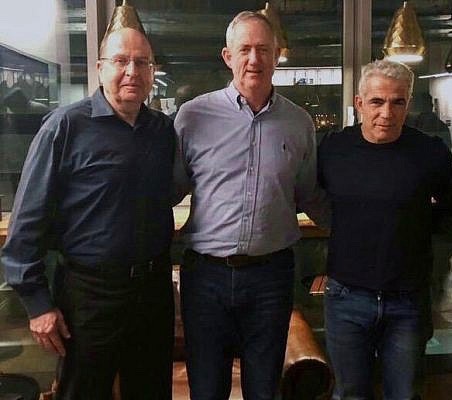
But even if Gantz and Odeh reach an agreement, the center-left bloc would still require the support of Liberman to establish a new government.
Liberman, who now holds the balance of power, has called for the creation of a “broad liberal unity government” comprising Yisrael Beytenu, Blue and White and Likud. While Liberman has ruled out the possibility of inviting the Arab Joint List into such a coalition, he has said he will not launch talks with any of the above-mentioned parties unless they accept his demands.
A secular nationalist, he has laid down a list of demands that would, if implemented, upend the religious status quo and keep haredi parties out of the political loop. This would be a revolutionary development.
Among the measures he is calling for is civil marriage, public commerce and transportation on the sabbath, a military draft for the ultra-Orthodox, and the introduction of secular subjects, such as math and English, in state-supported haredi schools.
Liberman’s demands are supported by Gantz and a majority of Israelis, who resent the financially costly privileges and exemptions that the haredi community has enjoyed for decades.
By sharp contrast, Netanyahu has courted the ultra-Orthodox sector, which accounts for about 10 percent of the Israeli population and shares his hawkish views of the Arab-Israeli conflict and Israel’s dispute with the Palestinians.
Facing defeat after a decade in office, Netanyahu — Israel’s longest-serving prime minister — continues to curry favor with the haredi camp. Yesterday, he announced that the Likud and the four ultra-Orthodox and right-wing parties that support him would enter forthcoming coalition talks as a single bloc.
“Now that we have established the right-wing bloc, there are only two options,” he said. “A government led by me, or a dangerous government that relies on the Arab parties. At this time, more than ever, especially in the face of the huge security and political challenges at stake, a government that relies on the anti-Zionist Arab parties must not be established. Every effort must be made to prevent such a dangerous government.”
Netanyahu’s comments, which were widely regarded as self-serving rhetoric, were in keeping with the harsh tone he adopted during the election campaign toward the Arab community in general and the Arab Joint List in particular. This was hardly surprising. During the 2015 election campaign, he rallied his base by claiming that Arabs were being bused to polling stations “in droves,” a racist comment he later recanted.
In this campaign, Netanyahu was divisive again.
Warning of voter fraud in Arab towns, he tried in vain to pass legislation to allow videotaping in majority Arab polling stations. The bill was defeated, but critics said it was an ill-disguised attempt to intimidate Arab voters.
The Likud, nevertheless, installed cameras outside Arab polling stations on election day to discourage Arabs from casting their ballots.
Likud’s tactic backfired spectacularly. The Arab turnout was 60 percent, compared to 49 percent in April.
Netanyahu, who faces criminal indictment in three corruption cases on charges of fraud, bribery and breach of trust, may well regret his decision to incite Israeli Jews against Israeli Arabs.
It could well cost him the election.
